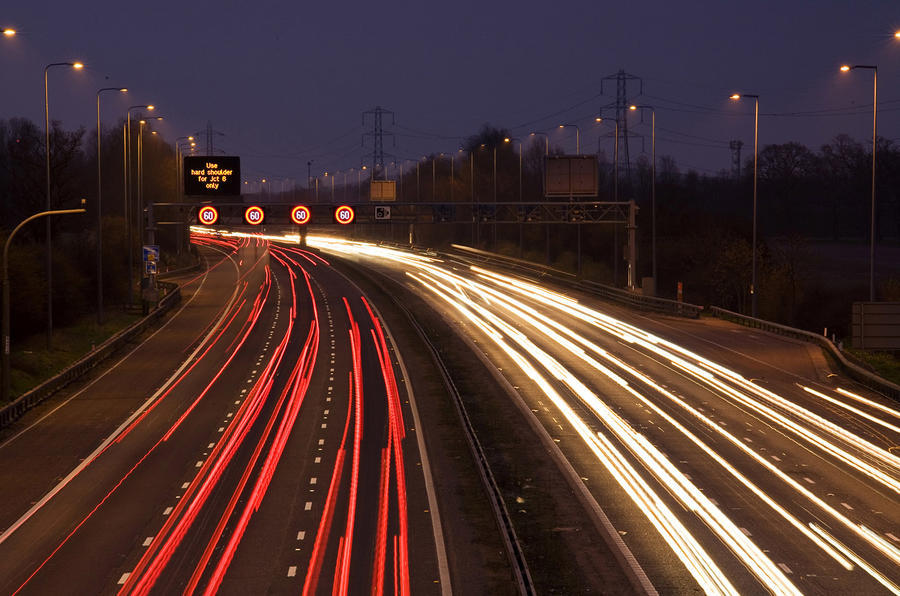Vehicle offences hit a nine-year peak in 2016, with almost 3.06 million being recorded across the year - the highest since 3.33m were noted in 2007.
The peak was driven by a bumper year for speeding offences, with 2.15m recorded - 28,000 more than in 2015. Licence, insurance and record-keeping offences were also at their highest since 2011, increasing by 31,000 over 2015.
Despite the higher figures, several areas of vehicular crime fell. Accident offences have fallen steadily since the early 2000s, while dangerous, careless and drunken driving offences have fallen by more than a quarter since 2009, with around 80,000 fewer offences recorded.
Thefts and unauthorised taking of vehicle offences are also at a new low, following plateauing results in 2013, 2014 and 2015. These offences are at around half of what they were in 2005.
IAM Roadsmart's director of policy and research, Neil Greig, said: “Unfortunately, these figures show that we still have a long way to go to make speeding as socially unacceptable as drinking and driving.
“While some of the increase in the volume of speeding offences has been caused by a change in reporting methods, with those attending driver awareness courses – which have been shown to reduce reoffending – now included, there is no doubt that speeding remains a major safety concern.
"Resources are still needed for education and publicity campaigns to drive home the message that road safety is as much about taking personal responsibility as it is about new methods of enforcement.”
Critics have been quick to point out that with police numbers a topic of hot debate, these falling numbers may simply reflect a decrease in the number of offenders caught rather than a true fall in crimes being committed.
“The decreasing figures are strong indicators of a lack of police on the beat, that’s why we’re disappointed to see those go down. We know that it’s not the case that people are driving more considerately. There are fewer traffic police out there and the main indicator of that is the reduction in the number of people being charged with more serious offences.” Greig said.
Prosecutions and convictions for those caught speeding are at their highest in a decade, however, according to the Ministry of Justice, with 183,000 people prosecuted and 168,000 convicted. Greig attributed the higher speeding prosecutions to more speed cameras, although explained that they're not always the best solution: “The interesting thing about average cameras is that compliance is high. We’ll see more average speed cameras in the future, but the problem is they’re more expensive than traditional speed cameras. To tackle the problem of speeding, however, we think there’s still scope for people and companies to take more responsibility with driver training. Far too many companies just don’t train their drivers or enforce their driving policies.”





Join the debate
Add your comment
Productivity, or lack thereof.
There already appears to be a slow dawning of realisation that targeting speed is increasing pollution and reducing UK GDP. As has already been pointed out, reduced speed limits, speed humps and the vast increase in traffic lights has contributed to the slow strangulation of UK growth.
There is a progression of effects caused by these changes.
Reduced traffic movement= more pollution - less productivity - reduced money for treasury - less spend on NHS- more people waiting for treatment and earlier deaths.
So reducing speed limits is not a 100% win 0% lose situation, in fact it probably causes many more deaths than it reduces on the roads.
At some point this logic will finally filter down even to the level of politicians.
Internet shopping....
Every day you see them being driven foot to the boards, with little to no regard for other road users and yet nobody stops 'em or has a word in their ear...
Did anyone mention that vehicle miles has increased?
One of the benefits of the 2007/8 financial meltdown was that the total vehicle miles traveled in the UK fell rather rapidly. Fuel prices were high, consumer confidence low, employment at risk and incomes fell but joy of joys congestion declined, fuel prices reduced and austerity has become a dirty word.
Sadly the quantity and quality of the road infrastructure hasn't been improved but with petrol and diesel at closer to £1.20 per litre that £1.50 people understandably have reverted to making more journeys and consequently more opportunities to speed, add to congestion and localised polution.
Has anyone noticed that sales of vans, white and other colours, have grown significantly?